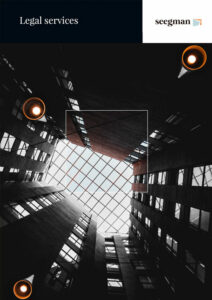
Start-ups, Law 28/2022 of 21 December
If you are thinking of launching a start-up in Spain, Law 28/2022 of 21 December could mark a turning point for your project. It is
Non-lucrative residence is a legal authorisation to reside in Spain without carrying out work or professional activities, expressly differing from other types of residence such as residence by investment. The purpose of this type of residence is to allow non-EU citizens who have sufficient financial means to support themselves to remain in the country.
In short, it is one of the most popular options for those who wish to make a personal change, settle for a long period of time or enjoy the Spanish environment and quality of life, in a fully legal and secure manner.
Non-lucrative residence is an authorisation aimed at non-EU citizens who wish to live in Spain without engaging in any paid professional occupation. In contrast, residence by investment is reserved for those who allocate considerable financial resources to real estate, business projects or financial assets, something that non-lucrative residence does not require or contemplate. Thus, the purpose is very different: here, priority is given to economic self-sufficiency without productive activity.
This permit is open to adults who are not citizens of the EU or the European Economic Area and who:
The process may include immediate family members under certain requirements, facilitating joint residence for the family unit.
The main focus of this authorisation is to demonstrate sufficient financial means for the entire period of stay requested. For 2025, the minimum amount required is approximately €2,400 per month for the holder and an additional €600 for each family member. This financial coverage can be justified by savings, passive income, property or investments outside Spain.
In addition, it is essential to have private medical insurance, without co-payments and with comprehensive coverage nationwide. Finally, it is necessary to pass a medical examination and prove that you do not suffer from any diseases with potential public repercussions, as well as pay the administrative fee corresponding to the application.
Unlike residence by investment, it is not mandatory to purchase property in Spain or to create jobs or national companies.
The regulations also cover those who prefer to invest in business projects with a real impact on the Spanish economy. We are talking about significant investments in national companies, technological or environmental initiatives, and projects capable of generating employment and innovation. This is the route chosen by those who are not only seeking a residence permit, but also want to leave their mark and be part of the country’s economic growth.
To begin the process, the application must be submitted to the Spanish consulate in the applicant’s country of residence. The essential documents include:
All foreign documents must be legalised and officially translated into Spanish if necessary.
The application must always be made at the Spanish consulate outside the national territory. Once submitted, the Administration usually decides within approximately three months. Once granted, the applicant has one month to collect the visa and travel to Spain, where they must apply for a Foreign Identity Card (TIE) within 30 calendar days of their arrival.
The first permit is valid for one year and can be renewed as long as the original conditions are maintained.
Renewals for non-lucrative residence require continued proof of financial resources and valid medical insurance, as well as proof of effective residence in Spain (more than 183 days per year). Each renewal extends the residence for two years. After five years of continuous residence, it is possible to apply for long-term residence.
There is no requirement to make new investments or maintain assets, as is the case with residence by investment, facilitating the continuity and simplicity of the process.
Denials are usually due to incomplete documents, insufficient proof of resources, criminal records, or inadequate medical insurance. In the event of denial, the decision can be appealed, first through administrative channels and then, if necessary, before the Spanish courts.
Seeking professional advice ensures that you are aware of the specific requirements of each consulate and can adapt your documentation in advance, so that obtaining non-lucrative residence becomes a successful and smooth process.
This practical guide aims to accompany and explain, based on regulations and experience, the procedure and realities related to non-lucrative residence (and, in its context, residence by investment) in Spain for 2025.
At Seegman, we have a multidisciplinary and international team specialising in the management of non-lucrative residence permits and residence by investment in Spain. Our experience allows us to accompany each client from the outset, anticipating requirements and resolving any obstacles with a personalised approach and professional rigour. If you are thinking of settling legally in Spain and are looking for personalised and efficient legal advice, at Seegman we are ready to help you every step of the way. Do not hesitate to contact us for a professional consultation and discover how to make your project of residence in Spain a safe and successful reality.

If you are thinking of launching a start-up in Spain, Law 28/2022 of 21 December could mark a turning point for your project. It is

Corporate tax is one of the main tax burdens for any company in Spain. But it is not all obligations: our system also offers tools

Executive summary In January 2025, the Organic Law 1/2025 was introduced, which amended article 365.3 of Spain’s Companies Act (LSC). The reform grants company directors